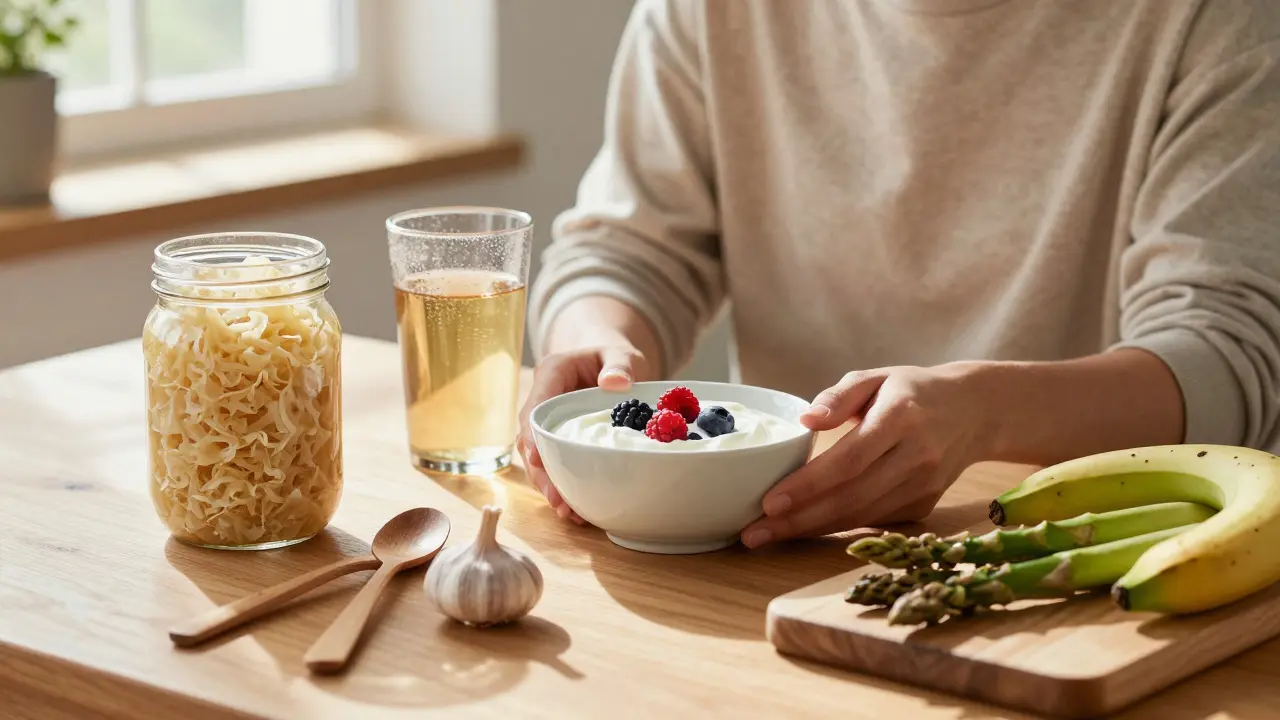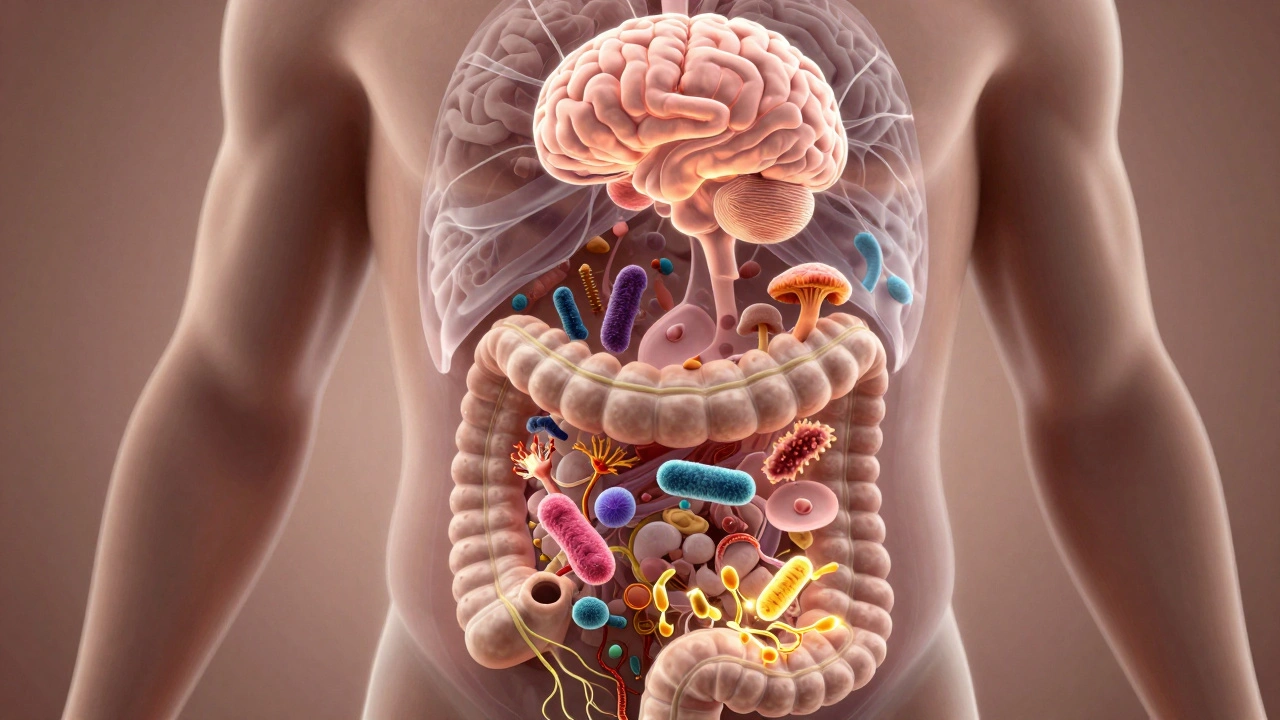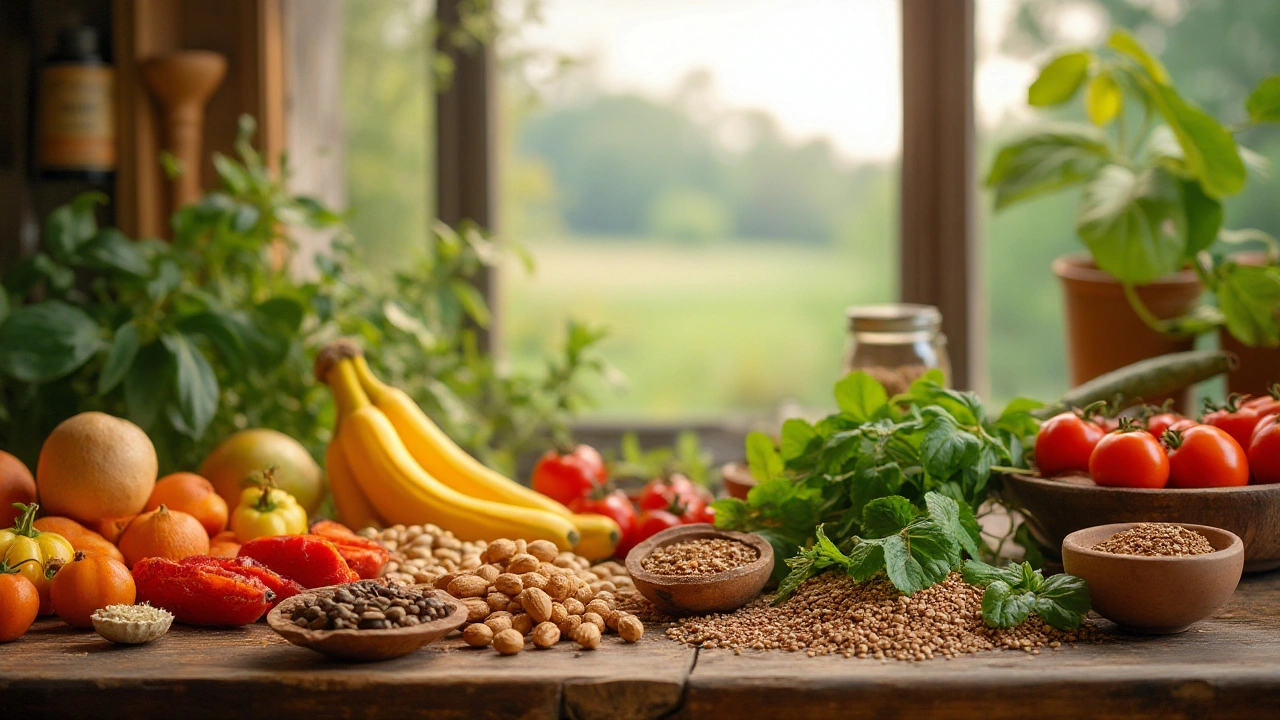Gut Health for Dogs: Simple Steps to a Happier Belly
Your dog’s gut affects energy, mood, immune health, and the shine of their coat. When the digestive system is out of balance, you’ll often notice it quickly — loose stools, gassiness, low energy, or picky eating. Keep reading for clear, practical steps you can use right away to help your dog feel better.
Signs your dog may have gut troubles
Look for these concrete clues: soft or watery stools, frequent accidents in the house, persistent gas, bloating, or a dull coat. Also watch for reduced appetite, vomiting, weight loss, or sudden changes in behavior like anxiety. If you see blood in stool, repeated vomiting, or rapid weight loss, call your vet right away.
Practical steps to improve gut health
Start with the food. Switch diets slowly over 7 to 10 days by mixing increasing amounts of the new food into the old. Sudden diet changes often cause diarrhea. Pick a high-quality dog food with named protein sources and moderate fiber. Too many treats, table scraps, or fatty foods will upset digestion.
Add fiber from dog-safe sources. Plain canned pumpkin (not pie filling) is a reliable choice: 1 teaspoon to 1 tablespoon depending on size of the dog can help regulate stool. Cooked sweet potato or green beans work too and add gentle bulk.
Use probiotics made for dogs. Canine-specific probiotics contain strains shown to help dogs recover from diarrhea and support normal gut flora. Give them according to the label or your vet’s advice. Avoid human probiotic products unless your vet approves them.
Consider a calming routine. Stress changes a dog’s gut motility and flora. Regular walks, stable feeding times, and short relaxation exercises after busy days help reduce stress-related stomach upsets. If your dog gets anxious during car rides or vet visits, ask your vet about behavioral strategies or short-term support.
Watch antibiotics closely. Antibiotics can wipe out helpful gut bacteria. If your dog needs antibiotics, ask the vet about giving a probiotic during and after the course to restore balance.
Hydration matters. Always keep fresh water available. Dehydration makes constipation and other digestive issues worse. In mild cases, adding low-sodium bone broth to water or food can encourage drinking and soothe the gut.
Avoid raw diets unless you understand the risks. Raw meat can carry bacteria that cause illness for dogs and humans. If you choose raw, work with a vet or canine nutritionist to reduce risks and ensure balanced nutrition.
Track changes. Keep a simple log of stool quality, appetite, and energy for two weeks after any diet change or supplement. That helps your vet see patterns and make smart recommendations faster.
When to call the vet: persistent vomiting, bloody stool, severe lethargy, dehydration, or unchanged symptoms after 48 to 72 hours. For mild problems that don’t improve, a vet visit can identify allergies, parasites, or underlying conditions and guide safe treatment.
Small, steady fixes usually help. Improve diet slowly, use canine probiotics if needed, manage stress, and check with your vet when problems persist. A healthy gut makes a healthier, happier dog.

How to Restore Your Gut Health After Antibiotics
Learn how to restore your gut health after antibiotics with proven steps: eat fermented foods, take the right probiotics, cut sugar, and support your microbiome with prebiotics and lifestyle changes.

Unlocking the Secrets of Gut Health
Discover the real secrets to gut health-how food, stress, and microbes shape your digestion, mood, and immunity. Learn what actually works to heal your gut naturally, without fads or supplements.

Why Gut Health is Crucial for Weight Management
Your gut bacteria play a key role in hunger, fat storage, and metabolism. Learn how improving gut health can help you lose weight naturally-without extreme diets.

Gut Health and Brain Connection: The Gut-Brain Axis, Diet Tips, and Science
Your gut talks to your brain. Here’s the science and a practical 30‑day plan-food, sleep, stress, and smart probiotic use-to support mood, focus, and calm.

Harnessing Gut Health to Thrive with Diabetes
The link between gut health and diabetes is more significant than many realize. This article dives into the complex relationship between the gut microbiome and insulin sensitivity. It offers insight into how gut health is a key player in managing diabetes and provides actionable tips to improve it. By understanding this connection, individuals can adopt strategies that promote better metabolic health.

Optimizing Gastrointestinal Health: A Comprehensive Guide
In the pursuit of a healthy lifestyle, gastrointestinal health plays a pivotal role. This article explores practical strategies and easy-to-understand insights for maintaining a happy gut. It delves into the importance of diet, beneficial bacteria, and regular health checks to ensure a resilient digestive system. Concepts such as dietary choices, lifestyle adjustments and the significance of gut-brain connection are also discussed. By integrating these tips, readers can enhance their digestive health naturally and effectively.

Gut Health and Its Impact on Your Metabolism
Unraveling the connection between gut health and metabolism, this article delves into how the tiny organisms in our digestive system can influence weight, energy levels, and overall wellness. It explores the role of the gut microbiome, offering insights into how diet and lifestyle can improve metabolic health. Readers will find practical tips to nurture a balanced gut that supports a more efficient metabolism. Understanding the delicate interplay between the gut and metabolism opens doors to healthier living.

Unlocking Gut Health Secrets: A Comprehensive Guide to Optimizing Digestive Well-being
This article dives deep into the fascinating world of gut health, providing a comprehensive understanding of how a balanced digestive system can lead to overall well-being. From exploring the complex ecosystem of the gut microbiota to offering practical advice on fostering a healthy digestive environment, this guide covers everything you need to know. Discover the significant impact of diet, lifestyle, and probiotics on your gut health and learn actionable tips for maintaining a happy tummy. Get ready to unravel the science behind gut health and take the first step towards a healthier, happier you.

Harnessing Probiotics for Optimal Digestive Health: Key Benefits and Implementations
Probiotics have become a focal point in discussions about digestive health and overall wellness. They are commonly known as 'good' bacteria that offer various health benefits, especially for the gastrointestinal tract. This article examines the crucial role of probiotics in maintaining and enhancing gut health, and how incorporating them into your diet can lead to improved digestion, enhanced immune function, and even mental wellness. Insights into the symbiotic relationship between probiotics and our body, as well as practical tips for harnessing their potential, are shared to guide readers towards a healthier gut flora.

How Meditation Techniques Boost Your Sleep Quality
Jan, 22 2025

How Biofeedback Improves Cognitive Performance
Nov, 12 2025

The Magic Touch: Understanding Lomi Lomi Massage
Oct, 19 2023

